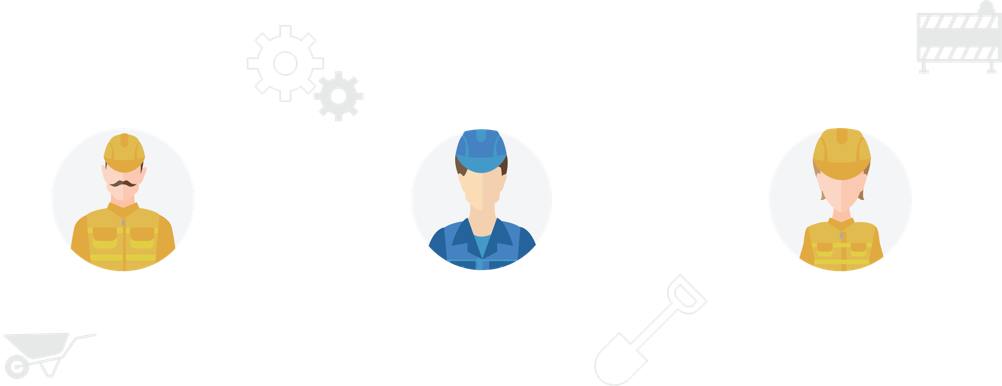Bakers prepare dough for pies, different types of bread, and other sweet goods. They also prepare batters for different types of muffins, cookies, and cakes for sale in retail food establishments (ie. grocery stores), restaurants, or other establishments. Bakers may also frost and decorate cakes or other baked goods.
Job Related Skills, Interests and Values
- Planning the sequence of tasks in order to produce quality goods that people will want to buy
- Calculating raw product requirements to meet production demand
- Ensuring baked goods are produced according to schedule to meet customer demand
- Performing job duties carefully, with attention to detail; observing proper hygiene practices
- Safely operating equipment including conventional ovens, microwaves, food processors, and high-tech equipment
- Keeping up with changes, trends, and customer preferences for baked goods (ie. organic products)
- Overseeing sale and merchandising of baked goods
- Hiring, supervising, and training new staff
What Preparation and Training Do You Need?
- Secondary school diploma with math credits; food preparation experience is an asset
- Hospitality and Tourism Specialist High Skills Major program an asset
- Completion of a 5,280-hour apprenticeship, plus two 12-week in-school sessions
What's Your Future as a Baker (423A)?
- Full or part-time; sometimes in shifts and during irregular hours
- May supervise department staff, train new hires, or schedule production
- Use of robotics and specialized mechanical equipment has led to some job loss, but anticipated that specialty bakeshops will continue to expand
- Employers include bakery manufacturing companies, wholesale food manufacturers, food stores, restaurants, hotels, and specialty baking/pastry businesses
Wage Rate
Apprentice wage increases with skill and experience. Fully qualified bakers earn an average of $16.00-$24.00 per hour.
Self-Rating
Baker (423A)
| Ask Yourself: | Yes | No |
|---|---|---|
| Do you have good hand-eye coordination? Are you a creative person? | ||
| Do you enjoy working with numbers, ratios, and performing calculations? | ||
| Do you like working with your hands and different tools and equipment? | ||
| Are you able to follow Health & Safety guidelines? | ||
| Do you have good customer service skills? Do you have patience? | ||
| Are you detail-oriented and good with colours? Do you like to brainstorm with others? | ||
| Are you reliable, a self-starter and able to work with minimal supervision? Can you start and finish work on time? |
If you checked YES to the majority of these questions, a career as a Baker (423A) may be for you!
You might want to look at these similar trades as well;
- Cook
- Pâtissier – Baker
- Cake Decorator
- Artist
Pâtissiers are pastry chefs. They manage the best pastry kitchens and create delicious cakes and pastries.
Institutional cooks prepare quality food according to budgetary requirements and using bulk-cooking methods in conventional, cook chill, or cook freeze environments. They meet individual dietary needs including health or religious requirements and ethnic preferences. Institutional cooks use approved recipes, appropriate ingredients, and specialized equipment for modification techniques to achieve the prescribed or recommended textures. They consider regular and prescribed therapeutic diets, modification of textures, and viscosity of fluids when preparing food and beverages.
Assistant Cooks prepare, cook, and assemble a wide variety of foods including short-order grill, breakfasts, sandwiches, simple salads, vegetables, and desserts. They may carve cooked meats, poultry, fish, and game. Assistant Cooks must also have strong working knowledge of table service, sanitation, soups, sauces, and more.
Chefs work in a variety of food service establishments including restaurants, hotels, spas, and country clubs. They are responsible for everything in the kitchen, from developing the menu and hiring staff to purchasing ingredients, selecting dinnerware, and assisting with restaurant design. Chefs have an advanced knowledge of food preparation and management, as well as knowledge of human resources, administrative procedures, and business management.
Hairstylists shampoo, cut, perm, shave, and style hair. With appropriate training, they also perform more complex tasks incuding colouring/frosting hair, weaving, and adding hair extensions.
Horticulturists use their gardening knowledge and skills in a variety of ways and in many different settings. While some may work to maintain formal gardens, others may spend their time tending to golf courses, cemeteries, or parks.
Retail Meat Cutters cut, trim, and package different varieties of meat, fish, and poultry for supermarkets, grocery stores, specialty stores, and wholesale food shops.
